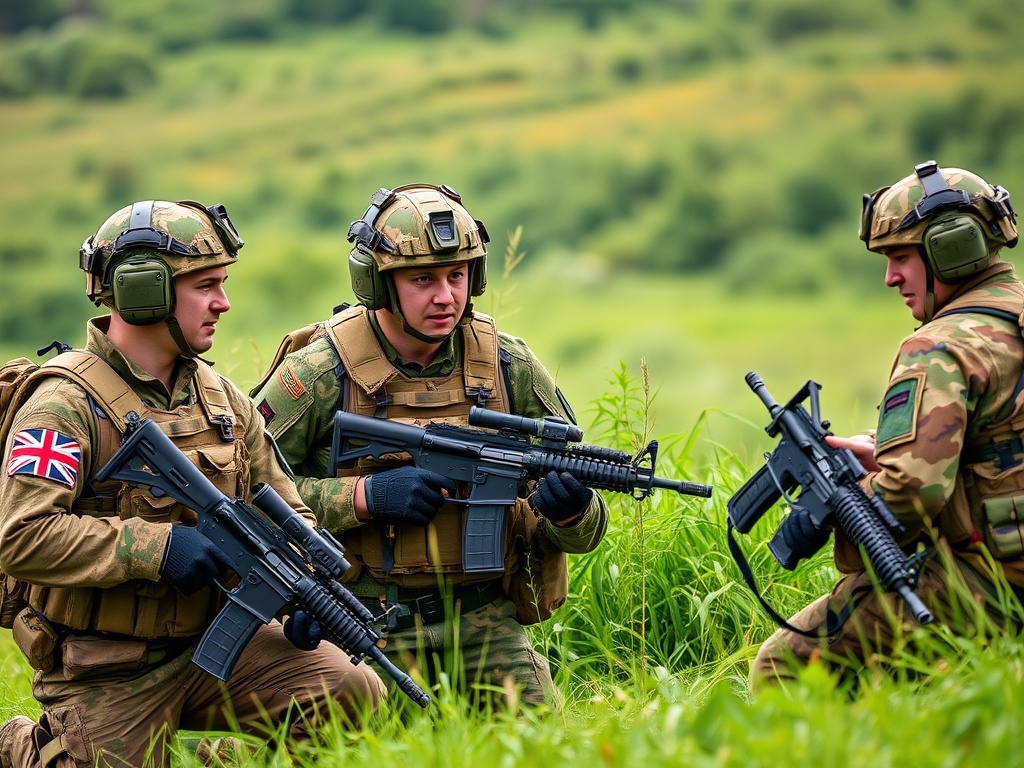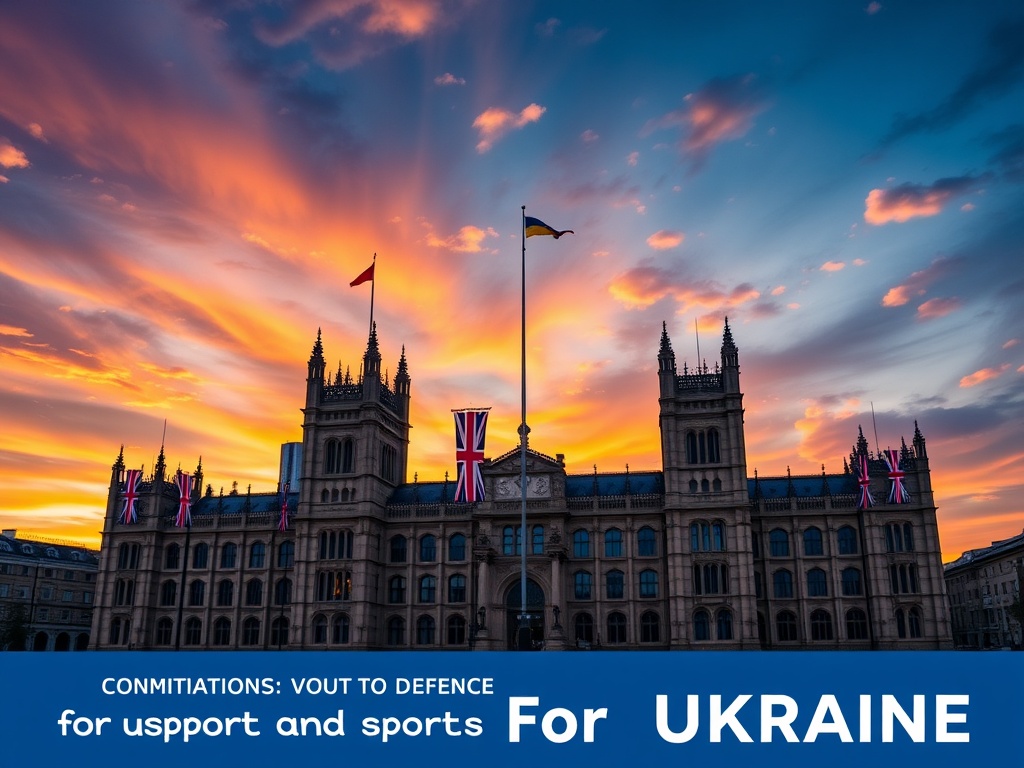UK Defence Spending and Support for Ukraine
The UK, along with its European allies, must significantly increase defence spending to bolster support for Ukraine, Sir Keir Starmer has emphasized. This call raises the possibility of more stringent cuts to other areas of public expenditure.
The Prime Minister has expressed a willingness to deploy British troops to lead a future peacekeeping mission in Ukraine, contingent on successful negotiations between the US and Russia aimed at ending the ongoing conflict. Additionally, there is a push for the US to act as a “backstop” for any security assurances extended to Kyiv, a move that could be interpreted as a challenge to Donald Trump’s stance.
During a recent gathering of European leaders in Paris, hosted by Emmanuel Macron, Starmer articulated the pressing need for Europe to take greater responsibility. He remarked, “It’s clear the US is not going to leave NATO, but we Europeans will have to do more. The issue of burden sharing is not new, but it is now urgent. Europeans must step up, both in terms of spending and the capabilities we provide.”
The Prime Minister echoed this sentiment, stating, “I’m prepared to consider committing British forces on the ground alongside others if there is a lasting peace agreement—but there must be a US backstop, because only a US security guarantee can effectively deter Russia from launching further attacks on Ukraine.”
Implications for Defence Budget
Starmer is facing increasing pressure to accelerate the promised increase in the defence budget, aiming to exceed the already pledged target of 2.5% of GDP. Achieving this goal would necessitate the Treasury finding savings in other areas, unless there is an unexpected surge in economic growth that could enhance overall funding for public services.
Reports indicate that most Whitehall departments have been instructed to explore ways to reduce their real-terms budgets, potentially by as much as 11% by 2029. A forthcoming three-year spending review, set to take place in June, will determine the allocations and cuts, with the 11% figure being viewed as a worst-case scenario.
Prior to this spending review, the Government intends to outline a “pathway” to achieving the defence spending target of 2.5%. Initially expected to be included in a broader review of defence policy, The i Paper suggests that this may be published separately, potentially hastening its release in light of recent geopolitical developments.
Former Defence Minister Tobias Ellwood has advocated for a more ambitious target of 3%, stressing that military spending must take precedence over other government budgetary commitments. He noted, “If the British public were aware of the threats on the horizon, there would be greater pressure to allocate funds for defence, as our economy’s stability hinges on strong national security.”
- Labour MPs Laura Kyrke-Smith and Melanie Ward, both newly elected, have called for the UK to emulate Poland, which has increased its defence budget to an impressive 4.7% of GDP.
- France has similarly indicated its readiness to contribute troops to a multinational peacekeeping force in Ukraine.
- However, Germany’s leader, Olaf Scholz, criticized the idea, stating, “The discussion is being held over Ukraine’s heads, regarding peace talks that have not yet occurred and to which Ukraine has not agreed, making this highly inappropriate.”
Upcoming Talks with Trump

Sir Keir Starmer is scheduled to travel to Washington, D.C. next week for discussions with Donald Trump, where he may have the opportunity to influence the President’s stance on Ukraine. HR McMaster, a former national security adviser, highlighted the significance of these talks, asserting that Trump “does learn” and “does listen” to the perspectives of other leaders, making this meeting crucial for Ukraine’s future and European defence strategies.
In contrast to the EU’s recent warnings at the Munich Security Conference that Trump appears to be engaging in “appeasement” reminiscent of pre-World War II policies, Whitehall has maintained a composed approach. A source indicated that a statement from G7 foreign ministers, which included the US, at the conference signifies that British diplomatic efforts are effectively shaping American policy. This statement reaffirmed commitments to defending Ukraine’s “freedom, sovereignty, independence, and territorial integrity,” along with imposing potential new sanctions on Russia.
McMaster commented at a Policy Exchange event in Westminster that Starmer’s upcoming discussions with Trump provide one of the best openings to sway US perspectives on the war. He noted, “President Trump is often not attuned to how his words resonate internationally, so it’s vital for him to understand this from his counterparts.”
He concluded by stating, “President Trump does learn conversationally, and after this meeting in Paris, the subsequent phone calls and in-person visits with European leaders will be paramount in influencing his views.”




